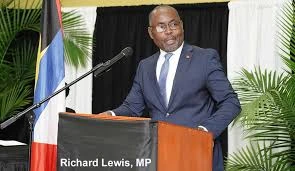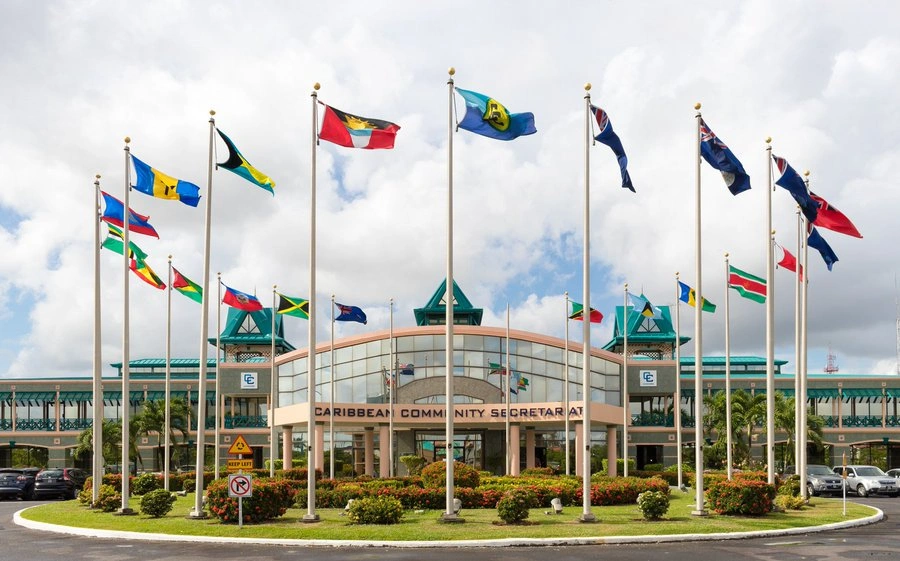Carib Sentinel | St. John’s, Antigua and Barbuda — February 16, 2025
ST. JOHN’S, Antigua and Barbuda — Member of Parliament Richard Lewis has ignited a fierce debate over the government’s proposed increase in vehicular license fees, urging Prime Minister Gaston Browne’s administration to reconsider the move amid mounting public backlash over the rising cost of living. Lewis, representing St. John’s Rural West, argues the fee hike—intended to fund a $100 million bond for nationwide road repairs—unfairly burdens citizens while existing revenue streams, such as profits from the Antigua and Barbuda Transport Board (ABTB), remain underutilized.
Calls for Accountability
Lewis highlighted Section 10(2) of the Transport Board Act of 1995, which permits ABTB profits to be transferred to the Treasury for public projects like road repairs. However, the ABTB’s most recent audited financial statement dates to 2018, a lapse criticized in the Director of Audit’s latest report. “Where is the oversight? Where is the accountability?” Lewis demanded, questioning why the government seeks new fees instead of addressing systemic financial opacity in statutory bodies.
Prime Minister Browne defended the fee increase as essential for a $250 million road modernization plan, emphasizing that improved infrastructure would reduce vehicle maintenance costs and boost economic growth. The proposal aims to generate $8 million annually (USD 2.96 million) over 10–15 years to repay a bond for concrete road construction, which the government claims will outlast asphalt. Critics, however, argue the plan lacks transparency. “We’ve already paid for roads through existing fees and loans, yet potholes persist,” one resident remarked on social media, reflecting widespread skepticism.
Public Outcry and Political Tensions
The proposed fee hike has drawn sharp criticism from citizens grappling with inflation and stagnant wages. Vehicle license fees in Antigua already range from $400 to $700 for smaller cars, contributing to an estimated $22.5 million in annual Transport Board revenue. Many question how these funds are allocated, given the poor state of roads like La Pasture and Buckley Line, which residents describe as “pools of dirt and mud”.
Lewis’s critique aligns with broader opposition demands for fiscal responsibility. The United Progressive Party (UPP), to which Lewis belongs, previously proposed a 50% reduction in vehicle fees during its 2018 campaign. Meanwhile, public frustration extends beyond roads, with calls for reforms in utilities, crime prevention, and agricultural investment.
Government’s Defense and Roadmap
Browne’s administration insists the fee increase is a pragmatic solution to urgent infrastructure needs. The Prime Minister noted that Antigua’s 400-mile road network—half of which has been upgraded—requires sustainable funding to support a growing population and tourism sector. Critics, however, point to controversial expenditures like a $1.5 million music festival as evidence of misplaced priorities.
The government has pledged to allocate fee revenue exclusively to road projects, but public trust remains low. “Transparency is key,” one commenter urged. “Show us where the money goes”.
Broader Implications
The debate underscores a regional challenge: balancing infrastructure investment with public affordability. Antigua’s vehicle density—45,000 registered vehicles for 100,000 residents—exacerbates road wear, yet solutions like public-private partnerships or green infrastructure remain underexplored. Lewis’s push for ABTB profit redistribution highlights alternatives to austerity, but political divisions risk stalling progress.
With local elections approaching, the fee hike has become a litmus test for governance. As Lewis declared, “The public should not bear the brunt when profitable entities can contribute”.
Carib Sentinel: Your trusted source for Caribbean policy, culture, and breaking news. Follow us for in-depth analysis and updates on regional developments.



